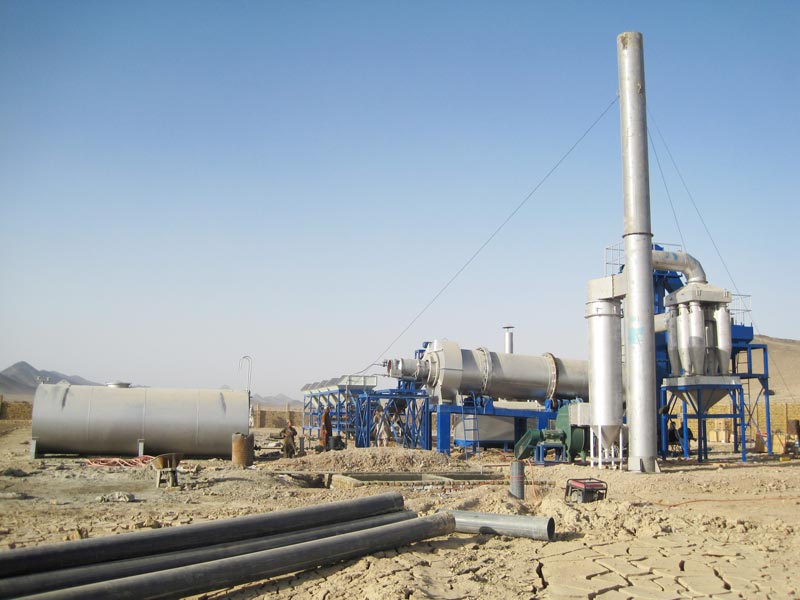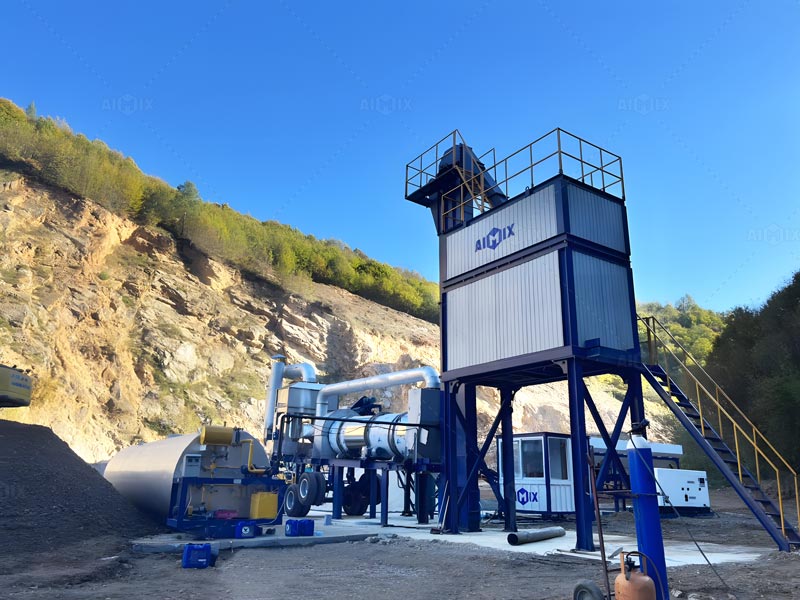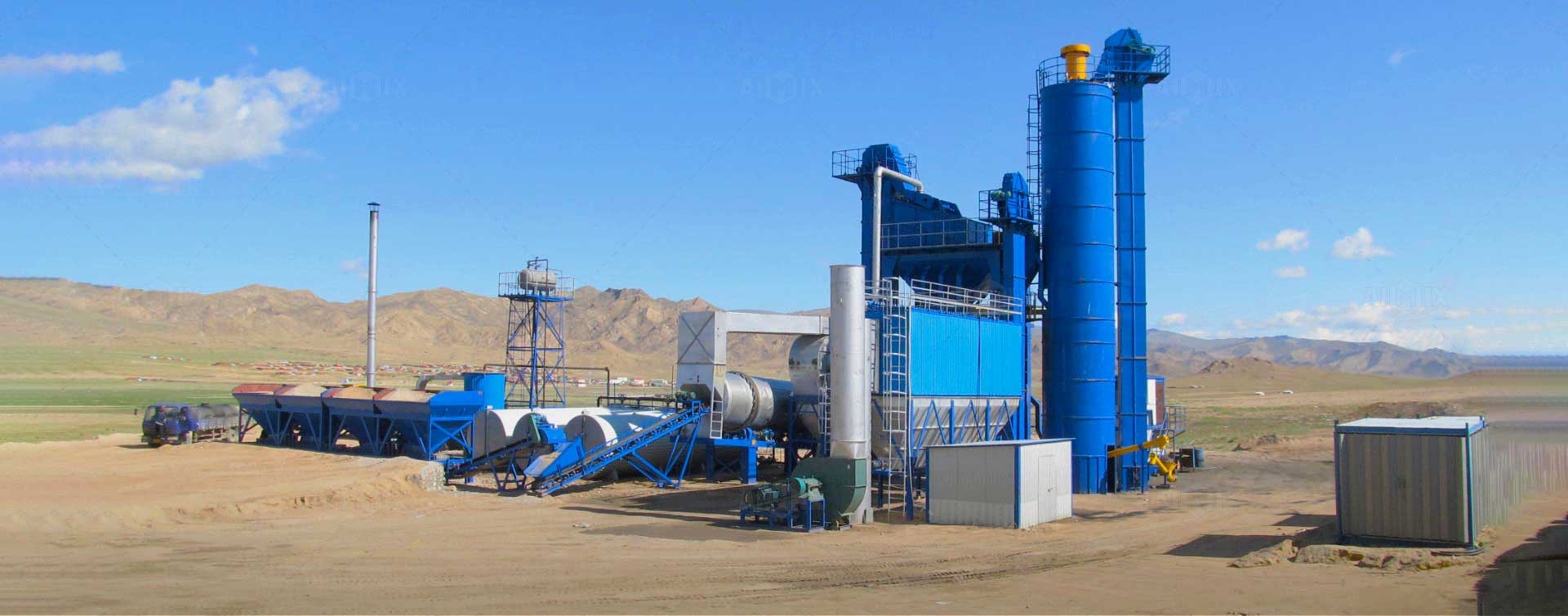Drum-mixed asphalt plants are widely used for producing high-quality asphalt mixes in large quantities. Achieving continuous production in these plants is crucial for meeting high demand and ensuring efficiency. In this article, we will explore how to achieve continuous production in drum-mixed asphalt plants, focusing on key strategies and considerations for enhancing performance.
Understanding Drum-Mixed Asphalt Plants
Drum-mixed asphalt plants are designed to provide a continuous and uniform production process. Unlike batch mix asphalt plants, which mix the asphalt in individual batches, drum mix asphalt plants(planta de asfalto continua) mix the aggregate and bitumen continuously in a rotating drum. This process allows for faster production and is ideal for projects requiring large volumes of asphalt, making it a preferred choice for many road construction companies.
Key Advantages of Drum-Mixed Asphalt Plants
One of the major benefits of drum-mixed asphalt plants is their efficiency. They are capable of producing asphalt quickly and in large quantities, which is essential for meeting tight project timelines. The continuous mixing process also helps to maintain consistent quality in the asphalt mix. Additionally, the simplicity of the drum mix process reduces the need for complex control systems and maintenance, which can lower operational costs.

Challenges in Achieving Continuous Production
1. Maintaining Consistent Aggregate Flow
One of the biggest challenges in ensuring continuous production in a drum mix asphalt plant is maintaining a steady flow of aggregates into the drum. Variations in the flow rate can lead to inconsistent heating and mixing of the aggregates, affecting the overall quality of the asphalt mix. To address this, it is essential to use high-quality aggregate feeders and regularly monitor the flow rate to ensure smooth operation.
2. Controlling Temperature Fluctuations
Another common issue in drum-mixed asphalt plants(planta asfáltica) is temperature fluctuation. Inconsistent temperatures can affect the bonding of the aggregates and bitumen, leading to a poor-quality mix. Maintaining a consistent discharge temperature is critical for achieving continuous production. This can be achieved by optimizing the burner settings, using precise temperature sensors, and ensuring the efficient operation of the drum heating system.
3. Managing the Asphalt Mixing Process
In drum-mixed asphalt plants, it is important to achieve a uniform mix of aggregates and bitumen. Inconsistent mixing can lead to poor quality asphalt that is not suitable for paving applications. To solve this issue, operators should ensure that the drum’s rotation speed is optimal and that the mixing zone is free from blockages. Regular cleaning and maintenance of the drum are essential for avoiding these problems.
Solutions for Achieving Continuous Production
1. Optimize the Aggregate Feeding System
To achieve smooth and continuous production, it is crucial to have an optimized aggregate feeding system. High-quality feeders should be used to ensure that the aggregates flow into the drum at a consistent rate. Additionally, the use of automated controls can help monitor the flow and make adjustments in real time to avoid disruptions in the production process.
2. Use Advanced Temperature Control Systems
Maintaining a consistent temperature in the drum is essential for achieving continuous production. Modern drum-mixed asphalt plants come equipped with advanced temperature control systems that automatically adjust the burner settings based on real-time data. These systems help to prevent temperature fluctuations, ensuring that the asphalt mix is produced at the right temperature for optimal performance.
3. Regular Maintenance and Inspection
To keep the drum-mixed asphalt plant running smoothly, regular maintenance and inspection are crucial. Over time, components such as the drum, burners, and aggregate feeders may wear out or become less efficient. Scheduled maintenance can help identify and resolve issues before they affect production. This includes cleaning the drum, checking the burner for proper combustion, and inspecting the aggregate feeding system.
4. Invest in High-Quality Materials and Equipment
Investing in high-quality equipment and materials is another important factor for achieving continuous production. Using reliable components, such as efficient burners, high-performance drums, and durable aggregate feeders, ensures that the plant operates efficiently and with minimal downtime. Additionally, upgrading to a mobile asphalt plant can provide more flexibility and ease of transport, allowing for efficient operations on multiple job sites.

Mobile Asphalt Plants for Enhanced Flexibility
Mobile asphalt plants are becoming increasingly popular due to their flexibility and ability to operate at various job sites. These plants are designed to be easily transported and set up, making them ideal for projects that require mobility and quick setup times. Mobile asphalt plants(planta de asfalto movil) are equipped with features that ensure continuous production, including advanced control systems and efficient heating mechanisms. Their compact design also makes them suitable for smaller projects with limited space.
Benefits of Mobile Asphalt Plants
Mobile asphalt plants offer several advantages, including portability, ease of setup, and reduced transportation costs. These plants are ideal for projects that require high mobility and frequent relocation. Additionally, mobile asphalt plants are equipped with modern technology to ensure smooth and continuous production, making them a reliable option for many road construction companies.
Conclusion
Achieving continuous production in drum-mixed asphalt plants is essential for meeting high production demands and ensuring the quality of the asphalt mix. By addressing key challenges such as inconsistent aggregate flow, temperature fluctuations, and mixing issues, operators can improve the efficiency of the plant. Additionally, investing in advanced technology, regular maintenance, and high-quality equipment can help achieve smooth and continuous production. Whether you are using a traditional drum mix asphalt plant or a mobile asphalt plant, optimizing these factors will contribute to more efficient and cost-effective operations.

